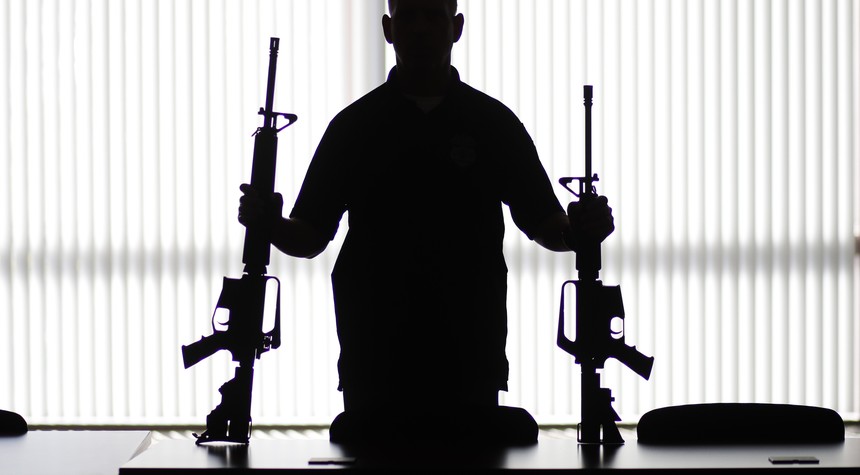Ghost Guns and Inconvenient Truths
“Ghost guns.” Even the term sounds scary. And it’s meant to sound scary; most of the anti-gun activist community depends on things sounding scary to make their point. Terms like “assault weapon,” or “high-capacity magazine,” or “cop-killer bullet,” or (and this is a golden oldie) “Saturday night specials.”
The problem is, on ghost guns, like so many other things, the gun-grabbers simply don’t know what they are talking about. Bearing Arms’ Tom Knighton has some details:
When a kid starts building models, the snap-together kits are a good place to start. They’re pretty easy to build, after all.
But so-called ghost guns aren’t snap-together models. They’re more involved, even if you buy a kit that comes with all the parts you need.
Of course, one would be shocked to learn that if what they know about these firearms came from CNN.
CNN decided to break the new information about the ghost guns used in the Philadelphia shooting over the weekend on Thursday’s CNN News Central by blaming the ghost gun manufacturers and distributers for the shooting. In addition to blaming these companies for this shooting, anchor Sara Sidner hosted former FBI Deputy Director Andrew McCabe on the show to essentially blame these companies for illegal gun ownership as well, since apparently they were “specifically…marketed to evade the law.”
Tom goes on to point out the major flaw in CNN’s argument:
Moreover, there’s literally nothing in those kits that people couldn’t get otherwise. They’re gun parts, all of which are readily available and aren’t subject to ATF control. The only part that’s considered a gun is the receiver, and even if you took out the “ghost gun” receivers you can buy online, this is the era of the 3D printer.
I’m sorry, but your efforts to control firearms are dead. Your efforts to stop so-called ghost guns are even more so.
All true. But there’s more to it than that.
I’ll set aside the Constitutional arguments for the moment, even though there are some very good ones to be made, especially in light of the recent Bruen decision. Instead, I’ll just describe some of the practical problems with the left’s bloviations about “ghost guns.”
Let’s talk about how banning anything always produces a black market for that product — always. We should have learned that during Prohibition, but apparently people still think blanket bans — on anything — can work. Even with guns, although the only effect any such laws would have would be on the law-abiding; in other words, the people who aren’t the problems. Criminals would still be able to get weapons on the booming black market that would quickly emerge.
The fact is, most guns really aren’t very complicated devices. The only real challenging part is producing a good-quality, rifled barrel that will deliver good accuracy, and frankly, the kind of people who are producing guns to sell to criminals on the black market aren’t very concerned with accuracy. But the balance of a typical firearm just isn’t anything complex or even new. Semi-auto rifles and handguns have been around since the late nineteenth century. Revolvers, since the 1830s. Most bolt-action rifles on the market today are derivations of the M-1898 Mauser. Lever-action rifles have been in production since before the Civil War. So these are well-known, well-established designs.
Forget 3D printing. Forget 80 percent receivers. Those may make the process easier, but that’s all. The simple fact is that anyone with a little training, a metal lathe, and a mill, can turn out a working firearm with nothing more than the machinery and some steel and aluminum blanks. No 80 percent anything, no 3D printer required. And some of the very simplest guns to produce are short, light, powerful pieces like the M3 Grease Gun, a compact submachine gun specifically designed to be cheap and easy to produce. Here’s one in action:
Designs for all these things are available, although I won’t post any links.
Gun-grabbers don’t know these things and aren’t interested in learning. They should, however, be aware of the Law of Unintended Consequences. A vigorous black market in illegally fabricated guns could easily make criminals much more dangerous than they are already, even as the general, law-abiding citizens are disarmed. And if you want to see how that sort of thing works out, you need only look south of our southern border.





Post a Comment